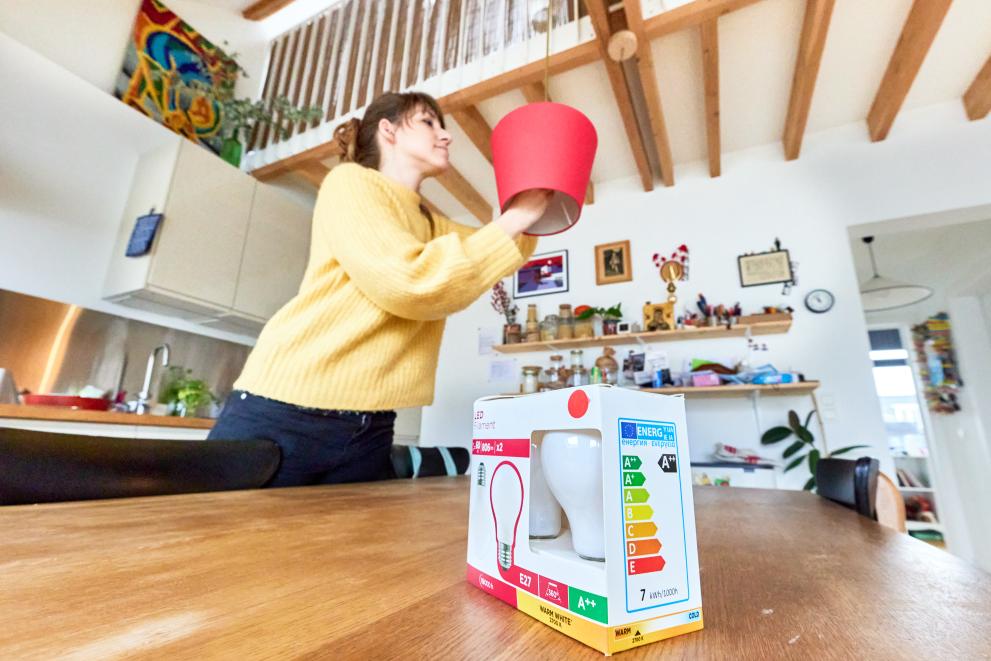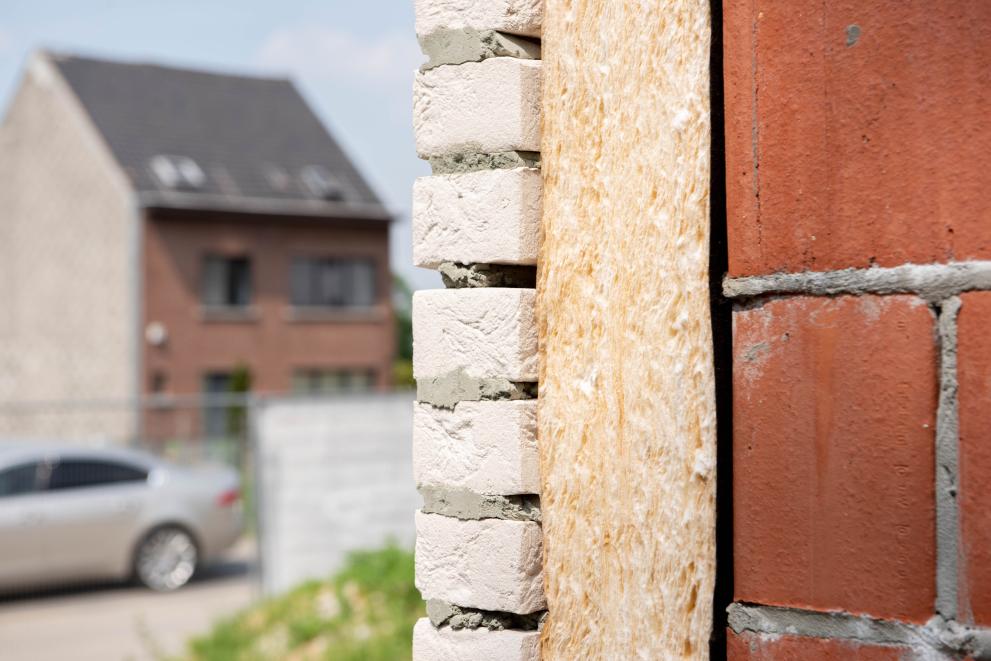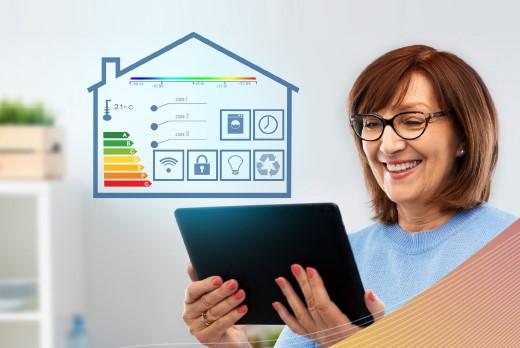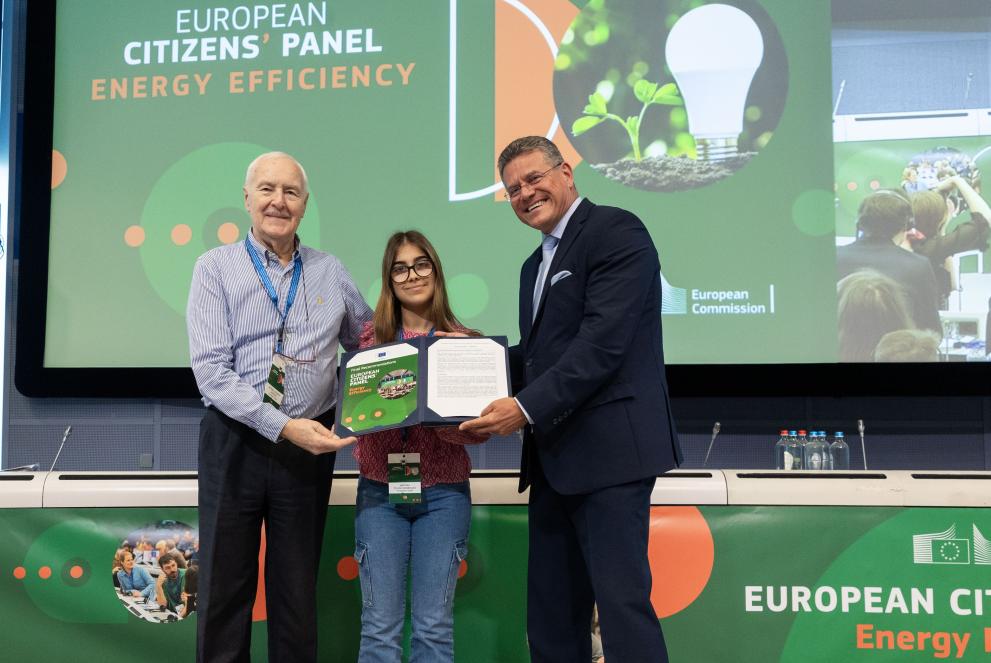Conclusion of the Energy Efficiency Debate

After months of insightful contributions and deliberations, the Citizens’ Engagement Platform has brought its first debate to a close. Since February, citizens from all across Europe have been sharing their views on how to enhance energy efficiency, reduce costs and avoid energy waste.
The ideas that were submitted by citizens on the Platform informed the discussions of the European Citizens’ Panel on Energy Efficiency. Furthermore, a dedicated report on the full results of the online debate will be submitted soon. The European Commission will follow up on these results, which in turn will help to guide future Commission initiatives.
The final report about the results of the debate can be found in the documents section below.
What is energy efficiency?
In the EU, each of us uses a great deal of energy every day. If we are efficient with energy, we can enjoy the same levels of comfort or more, while using less.
Energy efficiency gains mean more energy savings and lower bills for all. It can mean using less energy to do your laundry thanks to a more efficient washing machine, local authorities renovating public buildings or large companies installing more efficient equipment.
How can we make the EU more energy efficient?

We asked for your ideas on enhancing energy efficiency. Be it in your home, business or workplace, improved energy efficiency can take many different forms, such as:
- lighting, heating or cooling our buildings;
- using everyday appliances;
- taking different modes of transport.
Over a period of more than three months, you had the opportunity to share your suggestions and get to know the views of others.
The Energy Efficiency First principle

A guiding principle of European energy governance is “Energy Efficiency First” (“EE1st”). We were seeking citizens’ opinions on the implementation of this principle in energy policymaking.
EE1st means considering different alternatives among various possible measures in production, distribution and consumption of energy to enable end-users to achieve the same result with less energy, while maximising additional benefits to society. EE1st aims to ensure that:
- Only the energy really needed is produced
- Investments in inefficient technologies are avoided
- Demand for energy is reduced and managed in a cost-effective way
Recent European legislative initiatives have given this far-reaching principle a stronger role in policymaking, planning and investment decisions.
The citizens’ perspective

There are many ways in which energy efficiency benefits our lives:
- Reducing energy bills
- Improving air quality and health by lowering emissions
- Helping small businesses become more competitive
- Creating new green jobs
- Making us less dependent on fossil fuel imports
Your involvement in the concluded debate will impact EU policymaking - helping to enhance efficiency, reduce costs and avoid energy waste.
The European Citizens’ Panel on Energy Efficiency has submitted its recommendations to the European Commission

At the end of the final session of the Panel, the citizens presented their recommendations to Maroš Šefčovič, Executive Vice-President of the European Commission for the European Green Deal.
Over three weekends, 150 randomly selected citizens representing all 27 EU Member States came together to discuss the challenges and benefits of energy efficiency.
Together, they put forward a list of concrete recommendations that will contribute to shaping future EU laws and feed into upcoming Commission initiatives. This includes the foreseen Commission proposal for a Recommendation on the “Energy Efficiency First Principle”.
Timeline
The European Commission was looking for recommendations from citizens across the EU on how to maximise energy efficiency.
- February to April 2024Online contributions
Citizens create, comment on and endorse contributions on the Citizens' Engagement Platform. The Commission analyses these contributions and publishes reports.
- February to April 2024European Citizens' Panel
Citizens' contributions feed into the Panel. The Panel debates and addresses recommendations to the European Commission.
- May to Autumn 2024Taking action on Citizens' Panel recommendations
Platform contributions and Panel recommendations are followed up on by the European Commission.
- Autumn 2024Feedback on the outcome
Citizens are informed about the policy actions informed by their contributions and recommendations.

